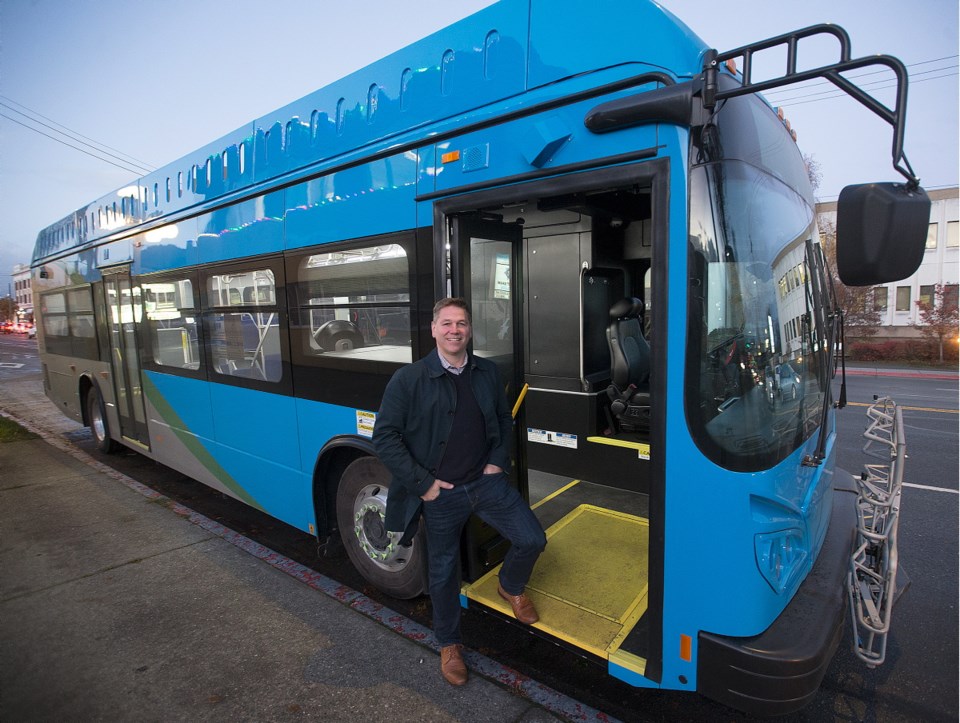B.C. Transit is looking to plug into the future of transportation by putting an electric bus into regular service for the first time.
The bus, powered by a battery system, will begin carrying customers in January. “This is very important to us because this is the technology that is emerging all around the world,” said B.C. Transit president and chief executive Manuel Achadinha.
“We, as B.C. Transit, want to make sure that we keep up to speed with where the technology is going. Advancements in electric-battery buses are continuing to improve, they get better, better every year.”
B.C. Transit has used electric buses before, but never to this extent. The six-month trial will begin with B.C. Transit mechanics evaluating the vehicle before it hits the road, Achadinha said.
“It will be going around the region,” he said. “What we’re hoping to get is feedback from customers.”
The bus was manufactured by Build Your Dreams, a Chinese company commonly known as BYD. The company is covering the cost of the bus and its charging station during the trial.
Like other buses in the B.C. Transit fleet, the electric model is 12 metres long and can carry 72 passengers. It is powered by a 324 kilowatt-hour battery and will travel about 250 kilometres per day on a single charge, before being recharged for three to four hours overnight.
Achadinha said a conventional bus travels 350 to 400 kilometres in a day, and he would like to see an electric bus that approaches that range.
An electric bus currently costs about twice as much as a conventional one fuelled with diesel.
However, BYD says they have lower fuel costs and need less maintenance than diesel models.
Susan Brice, who chairs the Victoria Regional Transit Commission, said she fully supports the electric-bus trial.
“We need to look at the equipment we’re using and be ready when new, more environmentally friendly equipment makes sense in the North American context,” she said. “This trial will give us a better sense of what our needs are in Greater Victoria and how they can be met.”
BYD representative Ted Dowling said the bus being tested represents a reduction of 75 tonnes of carbon dioxide per year, in comparison with a conventional bus.
He said passengers will notice how quiet the ride is. “You can have a conversation with the driver from the back if you want to.”
Dowling said BYD has delivered more than 30,000 of the buses around the world and they are “here to stay.”
“It’s not going to be a matter of if, but when every bus in town will be electric.”
B.C. Transit has previously brought in other options such as hybrid and compressed natural gas buses.
“A lot of other transit agencies look to us,” Achadinha said. “They know that we typically will be first one to ‘trial’ a new technology.”



